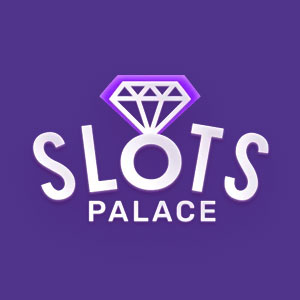Is Online Gambling Legal in Germany?
Online gambling is legal in Germany, but only under strict conditions outlined in the Interstate Treaty on Gambling, which took effect in 2021. This treaty allows licensed operators to offer online slots, poker, and sports betting across all German states.
Casinos must obtain a license from the Gemeinsame Glücksspielbehörde der Länder (GGL) to operate legally and comply with local rules, including deposit limits and responsible gambling tools. Players can access and use these licensed sites, but they must register using verified personal information.
Offshore gambling sites that are licensed by other regulatory bodies but still accept German players technically fall outside the regulated market. Some players might choose them for their fewer restrictions or more attractive features, but these platforms are not considered authorized to operate.
Gambling Regulators and Licensing in Germany
Germany’s approach to online gambling remained highly restrictive for years. Most digital casino offerings were considered illegal under national law, which drew repeated criticism from the European Commission for violating EU principles around the free movement of services. In 2011, the state of Schleswig-Holstein briefly introduced its own state-level licensing, issuing a limited number of permits, although that law was quickly repealed.
The Fourth Interstate Treaty on Gambling (Glücksspielneuregulierungstaatsvertrag – GlüNeuRStV) officially came into force in 2021. This established a unified legal framework for regulating online gambling nationwide. Oversight now falls under the Gemeinsame Glücksspielbehörde der Länder (GGL). The GGL is responsible for reviewing and issuing licenses, monitoring compliance, enforcing advertising and safety rules, and managing national supervisory systems.
Regulated Gambling Types in Germany
| Type of Gambling | Who Is Allowed to Operate | Operational Restrictions |
| Online Slots | GGL-licensed private operators | Spins limited to €1, no autoplay, forced breaks every hour |
| Online Poker | GGL-licensed private operators | Only permitted in approved formats with identity-linked player accounts |
| Sports Betting | GGL-licensed private operators | Sports betting must be separated from casino content with enforced cooldowns inbetween |
| Online Table Games (e.g., Blackjack) | State-run companies only | Only available through state providers under limited conditions |
| Lotteries | State-run companies only | Not available on casino platforms; only sold through official lottery sites |
| Horse Race Betting | Licensed bookmakers | Regulated under separate racing legislation, not GlüStV |
Requirements for Licensing and Operation
Operators applying for a license in Germany undergo a thorough vetting process. Applications must demonstrate that operators can securely manage deposits and withdrawals, stay compliant with anti-money laundering laws, and have measures to protect players, including connections to monitoring systems like LUGAS and OASIS. Only applicants who pass every stage of the review process receive a license.
Once licensed, German operators must follow a set of standardized rules, among which are:
- Deposit limit: Monthly deposits are capped at €1,000 across all licensed platforms
- Site exclusivity: Players cannot use more than one licensed site at the same time
- Panic button: Must be visible on every page; locks access to the site for 24 hours when clicked
- Third-party exclusion: Can be initiated by family or others for at least 12 months
- Gambling type separation: Different gambling products must be kept on separate parts of the site, with no cross-promotion
- Slot restrictions: One euro max bet per spin and five-minute breaks every hour of play
How to Recognize a Licensed German Casino
All legal providers are included in the GGL’s official whitelist, which is publicly available. You can also usually tell whether an online casino is legitimate by checking the homepage. If any of the following applies, the site is likely not licensed for the market:
- The casino does not display the GGL seal or a written statement confirming that it is authorized by the GGL.
- The casino displays a seal from another licensing authority, such as Curacao, Malta, Anjouan, or a similar offshore regulator. These licenses may be valid elsewhere, but do not grant permission to operate in Germany.
- There is no visible licensing information. Every licensed casino clearly displays its licensing details on the homepage, usually in the footer section or its terms of use.
If the GGL seal isn’t visible or the site is using a foreign license without acknowledging local regulations, something is likely amiss. To be clear, seeing a license from another jurisdiction doesn’t automatically mean a casino is unsafe. Offshore regulatory bodies have their own rules for player protection and operational standards. In many cases, these platforms function reliably for users in other countries.
However, these casinos are not permitted to accept players from Germany. Platforms found to be targeting users in Germany without authorization may be:
- Blocked or delisted by the GGL
- Reported and pursued for enforcement
- Removed from search engine results within Germany
Players who use unauthorized platforms may also face consequences. At a minimum, it becomes difficult to recover funds or file complaints, especially since the GGL does not assist with losses on illegal sites. That’s why it’s safest to play only at casinos that are fully licensed and listed on the whitelist, where you can confirm a site’s legal status easily.


